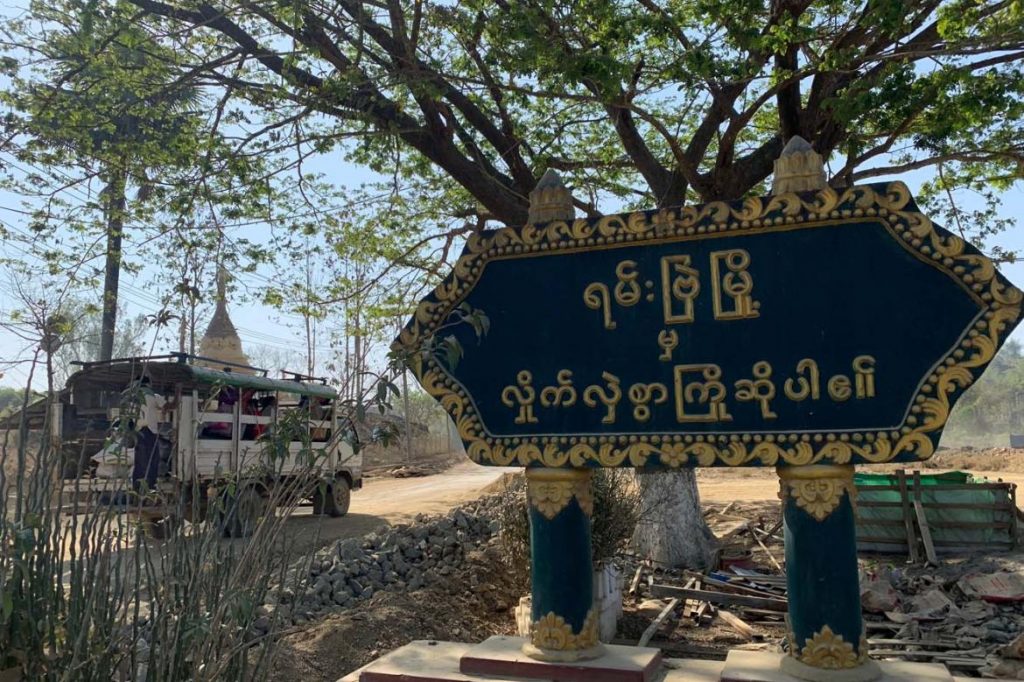A family on Rakhine State’s Ramree Island has been banished because it refused to pay for a religious ceremony after carrying a drowned toddler’s body through a village.
By MRATT KYAW THU | FRONTIER
ON AUGUST 28 last year, Maung Bone Myint Khant Wai, aged two-and-a-half years, drowned while playing in a creek with other children near the village of Ywar Haung on Ramree Island in Rakhine State.
Bone Myint Khant Wai’s death was a tragedy. But his family’s loss has been compounded by a vicious community dispute that has forced them to leave their village and shelter 6 kilometres away, in a tent on a nearby beach.
The turn of events underlines the weakness of the judiciary and low-level government officials in resolving local conflicts, their inability to protect marginalised groups and the lack of trust that many people have in official institutions.
After Bone Myint Khant Wai was pulled from the creek, his distraught grandparents took him to a station hospital (known in Burmese as tike neh say yone) in Laydaung village in Ramree Township, but it was too late.
Support more independent journalism like this. Sign up to be a Frontier member.
“After 40 minutes of giving oxygen, we knew we had to give up,” said the boy’s grandfather, U Tun Wai, 48.
They took the body to the morgue at the hospital in Ramree town, about 23 kilometres from Ywar Haung, which is in Zayatpyin village tract. They left the hospital the next day at 8am and arrived back home about two hours later.
“We had to carry the body through the wards of Ramree [town] as well as some villages to reach our village,” Tun Wai told Frontier, referring to Ywar Haung.
On August 30, a group of residents from Zayatpyin village, including the former village head, sent a letter to Tun Wai demanding K100,000 to cover the cost of a Buddhist ceremony. They wanted to hold the ceremony to banish evil spirits. These spirits, they believe, arise whenever the body of someone who had died an unnatural death passes through the village.
Tun Wai said his wife, Daw Ma Tin Myint, signed an agreement to pay the money under duress, but he refused to pay the money on the grounds that his wife is not the head of the household.
In response, elders from Ywar Haung and other nearby villages held a meeting attended by about 100 people at which participants agreed to ostracise the drowned boy’s family. The meeting in Zayatpyin also decided that the family must pay the original K100,000 plus a further K45,000 to cover the “travel expenses” of village heads.
The village tract administrator, U Shwe Maw, told Frontier that the elders of Ywar Haung gave K100,000 to Zayatpyin village on behalf of Tun Wai’s family.
“The family initially agreed to pay, but later they refused,” Shwe Maw said.
For this refusal, the village elders of Ywar Haung and their supporters retaliated by cutting the electricity supply to Tun Wai’s home on October 2, according to numerous sources. The village leaders then ordered Tun Wai and his family to pay back loans, together with the accumulated interest, that had been issued to them under the government’s Mya Sein Yaung community development project.
After the decision was made to expel the family from the village, village leaders also demanded the family contribute K540,000 on behalf of his two teenage grandchildren – a boy, 15, and a girl, 16. It is a common practice in villages for every unmarried boy and girl to contribute K500 or K1,000 a month to a village development fund, but it was unclear how the village elders had arrived at the figure of K270,000 each.
Tun Wai decided to take legal action, and on November 27 submitted a complaint against 15 people, including the village head of Ywar Haung, alleging defamation, dishonour and abuse of power.
The case went before a Ramree Township Court judge, who asked police to investigate. A subsequent police report, seen by Frontier, found there had been no breach of criminal law and the judge dismissed the case.
But the judge also ordered that Ywar Haung residents drop their financial demands against Tun Wai’s family and restore the electricity supply, according to Daw Khin Khin Mar, the lawyer for Tun Wai.
The verdict was apparently intended to calm the situation, but the electricity has not been reconnected and the family remains banished from the village.
Khin Khin Mar said the family had the option of appealing to a higher court but she had “no idea” what it was planning.
Ramree Township administrator U Shwe Hla Maw, who has held the position since moving from neighbouring Kyaukphyu Township in July last year, told Frontier he was not aware of the case. He also said he had not met the judge who had dismissed the lawsuit.
But Shwe Maw, the village tract administrator, was unrepentant despite the judge’s decision. “Actually they [Tun Wai’s family] should have paid that money for the stability of the village and its unity, despite the court decision,” he said.
While Tun Wai’s family has repaid the money for the Mya Sein Yaung project, he said they also have been asked to repay more than K1 million to the village that he borrowed from a village fund in May last year.
The dispute has taken a significant toll on the family as it tries to get over the loss of Bone Myint Khant Wai.
“I’m now living away from the village with my family,” said Tun Wai.
“We dare not return to the village. They are waiting to humiliate us,” he said. “We may be alive but we feel dead.”







